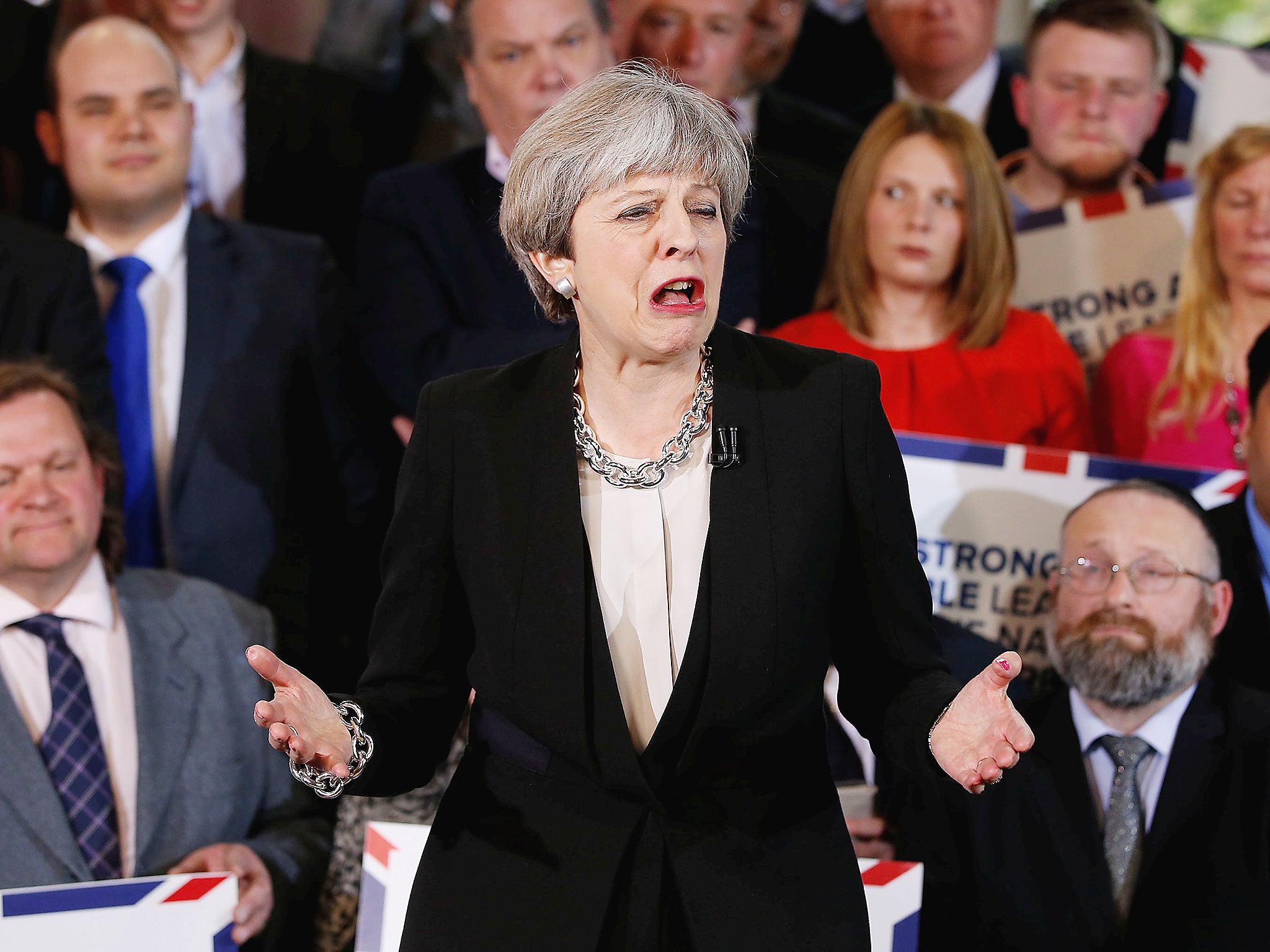Don’t worry about Brexit – worry about the Great Repeal Bill that comes after it
The Great Repeal Bill is an executive coup which will give the Government a range of powers, including Henry VIII powers. These allow ministers and civil servants to scrap rights without a vote in Parliament

Your support helps us to tell the story
From reproductive rights to climate change to Big Tech, The Independent is on the ground when the story is developing. Whether it's investigating the financials of Elon Musk's pro-Trump PAC or producing our latest documentary, 'The A Word', which shines a light on the American women fighting for reproductive rights, we know how important it is to parse out the facts from the messaging.
At such a critical moment in US history, we need reporters on the ground. Your donation allows us to keep sending journalists to speak to both sides of the story.
The Independent is trusted by Americans across the entire political spectrum. And unlike many other quality news outlets, we choose not to lock Americans out of our reporting and analysis with paywalls. We believe quality journalism should be available to everyone, paid for by those who can afford it.
Your support makes all the difference.Keir Starmer yesterday called for an EU exit that brings the country together, and promised to protect the rights of workers, consumers, and environmental rights. These aspirations are to be applauded, but to achieve a Brexit that both unites the country and protects individual rights, Labour must go further. It needs to stop Theresa May’s Great Repeal Bill.
Following Brexit, the Prime Minister has proposed the Great Repeal Bill which will give the UK government sweeping powers to repeal all EU legislation currently in place without parliamentary approval. The bill is little more than an executive coup. It undermines Parliament and opens the door to a bonfire of individual rights. This is no mere academic point. Parliament is our supreme law making institution because it is accountable to voters. If Parliament is diminished, we are all disenfranchised.
The Great Repeal Bill will give the government a range of exceptional powers, including Henry VIII powers. These allow ministers and civil servants to scrap rights without a vote in Parliament. The breadth of these powers, and the unprecedented volume of law they will cover, means that the government will, effectively, be able to legislate without Parliament.
The only limit on these exceptional powers, is the promise that they will not be used to make “policy changes”. But, as it seems only the government will have the power to decide what counts as a “policy change”, this does not represent any sort of meaningful accountability. Indeed, the White Paper’s example of a “non-policy” change (notification requirements relating to protected natural habitats) would remove a substantive protection for our natural environment, with potentially devastating impacts.
Starmer promised to scrap the Great Repeal Bill and replace it with an ‘EU Rights and Protections Bill’. This is a better approach. It recognises that EU derived laws make a valuable contribution to our society. Even Brexit’s most extremist supporters would not begrudge people the right to be safe at work or laws that protect consumers from shoddy products and dishonest sales.
Labour is right to make preserving such rights its starting point, and the promise of a Brexit that “brings people together” is laudable. But, for this to be a reality, Labour’s manifesto must deliver a more full-throated defence of parliamentary democracy and individual rights.
Labour’s EU Rights and Protections Bill must do two things. First, it must scrap Henry VIII powers. They are undemocratic and unnecessary. At the very least, Labour must guarantee (on the face of the bill) such powers cannot erode substantive rights. This will allow individuals to hold the government to account in court if it starts to misuse its powers, and re-establish Parliament and elected representatives as the supreme decision-makers.
Second, it must ensure the bill will transfer the entirety of EU derived law, (the acquis communitaire) into UK law. The Conservatives proposed to transfer only those aspects which were “practical, leaving the decision about what is “practical” to be made behind closed doors.
We have just two years to prepare for Brexit. This is not enough time to sort through the acquis communitaire in a democratic and accountable way. It is certainly not enough time to ensure that rights are not merely preserved on paper, but accompanied by the network of supporting rules and institutions that make them effective and enforceable. The only way to genuinely uphold our rights is to transfer EU law wholesale into UK law. We can then decide which EU derived laws to maintain, repeal, or replace in a thoughtful, transparent, and accountable manner, after Brexit.
Brexit is the defining issue of our generation, and will represent a wholesale constitutional rewrite. Labour have started out in the right direction, but the country needs them to fully embrace the role of champion of democratic rights and individual liberties.
Sam Fowles is a researcher in law at Queen Mary University of London and a spokesperson for Another Europe is Possible
Join our commenting forum
Join thought-provoking conversations, follow other Independent readers and see their replies
Comments